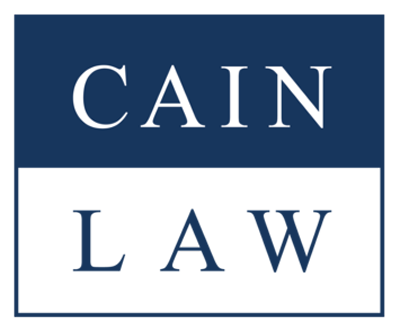Apex, NC
For Your Peace of Mind, Work With A Dedicated Bankruptcy Lawyer in Apex, NC
While filing for bankruptcy may seem like an overwhelming step, you don’t have to go through it alone, and with the support of our bankruptcy lawyer’s knowledge and extensive experience in the field, we’ll keep the process smooth and seamless for your peace of mind.
Cain Law, PLLC, has been providing affordable and effective legal solutions to struggling individuals and businesses in Apex, NC, by negotiating and arranging flexible repayment plans tailored to their specific needs. Timothy Cain is a compassionate bankruptcy attorney who will assertively advocate for your rights and keep your best interests in mind while developing a strategy that will allow you to relieve your financial burden in the best possible way.
Cain Law, PLLC, has been providing affordable and effective legal solutions to struggling individuals and businesses in Apex, NC, by negotiating and arranging flexible repayment plans tailored to their specific needs. Timothy Cain is a compassionate bankruptcy attorney who will assertively advocate for your rights and keep your best interests in mind while developing a strategy that will allow you to relieve your financial burden in the best possible way.
From Financial Hardship to Relief: How Do We Do It?
The bankruptcy system is intricate and requires both experience and willingness to handle its complexities. There is no one-model-fits-all approach to dealing with bankruptcy, which is why we have to carefully assess every situation on a case-by-case basis to achieve the best possible outcome. Depending on your situation, our attorney may advise you to go for any of the following routes:
Chapter 7 Bankruptcy: This type of bankruptcy is known as liquidation or straightforward bankruptcy. It’s useful for individuals with very few assets and you may be able to obtain discharge for most of your debts, including:
Chapter 13 Bankruptcy: This type of bankruptcy differs from Chapter 7 in that it’s most commonly used by individuals whose disposable income surpasses Chapter 7 requirements, or who have equity that they want to keep instead of liquidating to repay creditors. In this case, the debtor can pay in monthly installments in a period that usually lasts from three to five years.
There’s no predetermined amount to pay; this will be decided by taking your income as a basis and, in the event of a change in your income, the plan could be modified to fit these newer conditions. While Chapter 13 is reserved for individuals, if a debtor owns a small business, it could be possible to achieve the needed legal structure to benefit from Chapter 13 as a sole proprietor.
Chapter 11 Bankruptcy: This type of bankruptcy is generally more useful for businesses seeking to reorganize their debts and assets, which is why it’s known as a reorganization bankruptcy. Corporations tend to file for Chapter 11, but so do higher-income individuals that don’t qualify for Chapter 13. The main purpose of choosing this route is to allow the business to continue operating while they pay off their debts.
Keep in mind that once you file for bankruptcy, what we call an automatic stay generally goes into place, which halts actions by creditors, collection agencies, individuals, and government entities from pursuing you as a debtor.
Chapter 7 Bankruptcy: This type of bankruptcy is known as liquidation or straightforward bankruptcy. It’s useful for individuals with very few assets and you may be able to obtain discharge for most of your debts, including:
- Credit cards
- Medical bills
- Unsecured personal loans
- Store accounts
- Trade or vendor debt
- Certain kinds of tax obligations
Chapter 13 Bankruptcy: This type of bankruptcy differs from Chapter 7 in that it’s most commonly used by individuals whose disposable income surpasses Chapter 7 requirements, or who have equity that they want to keep instead of liquidating to repay creditors. In this case, the debtor can pay in monthly installments in a period that usually lasts from three to five years.
There’s no predetermined amount to pay; this will be decided by taking your income as a basis and, in the event of a change in your income, the plan could be modified to fit these newer conditions. While Chapter 13 is reserved for individuals, if a debtor owns a small business, it could be possible to achieve the needed legal structure to benefit from Chapter 13 as a sole proprietor.
Chapter 11 Bankruptcy: This type of bankruptcy is generally more useful for businesses seeking to reorganize their debts and assets, which is why it’s known as a reorganization bankruptcy. Corporations tend to file for Chapter 11, but so do higher-income individuals that don’t qualify for Chapter 13. The main purpose of choosing this route is to allow the business to continue operating while they pay off their debts.
Keep in mind that once you file for bankruptcy, what we call an automatic stay generally goes into place, which halts actions by creditors, collection agencies, individuals, and government entities from pursuing you as a debtor.
Trust Our Bankruptcy Law Firm To Handle Your Case With Professionalism and Care
After years of accompanying individuals and their families and helping them overcome burdensome debts, we understand that the first step of seeking a competent bankruptcy attorney might be distressing, which is why we offer a free initial consultation to evaluate your case via phone call, virtual meeting, or in-person, whichever suits you best! We’ll assess your unique situation and advise you on whether or not you should proceed with filing bankruptcy. Call us at (919) 896-8400, or fill out our online contact form to request your free consult.

Drug crimes are taken seriously and prosecuted aggressively in the state of North Carolina.

When a couple who has children decides to get divorced, the process becomes even more complicated and emotional.

Businesses have a variety of legal needs, especially in the startup and development phase.

